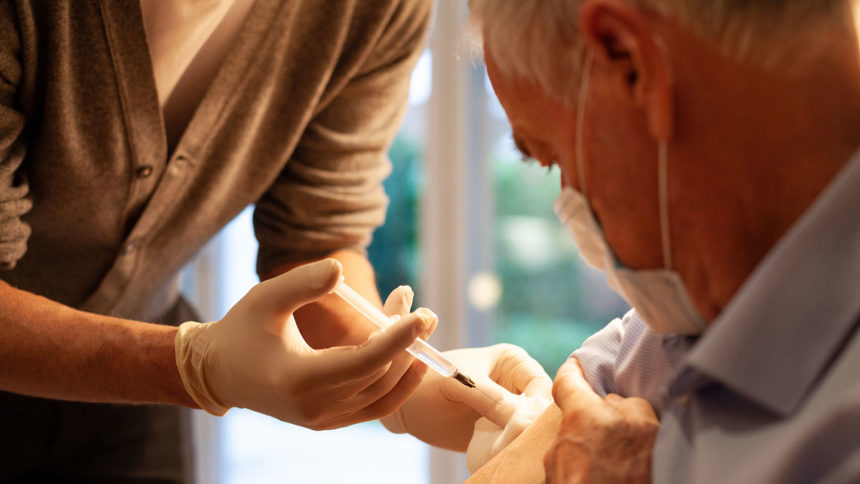
Vaccine makers Pfizer and BioNTech plan to request authorization of a second COVID-19 booster shot of their mRNA vaccine Comirnaty for adults aged 65 and older, according to the Washington Post.
A second booster — or fourth dose — will be necessary to improve the vaccine’s waning protection in the face of the omicron variant, which puts seniors and the immunocompromised at greater risk of infection over time, Pfizer CEO Albert Bourla has stated. Whether the FDA will find the company’s evidence compelling remains to be seen.
The news comes two months after the Food and Drug Administration shortened the time between the completion of primary vaccination with the Pfizer vaccine and a first booster dose to at least five months, down from six months, for people aged 12 and older.
The FDA will likely review data from Israel, which has approved a fourth shot of the Pfizer vaccine for seniors and healthcare workers, the Post reported. Israel has recently found that a fourth dose, while boosting antibody levels higher than a third, is not as effective against infection with omicron.
Low uptake in nursing homes
Meanwhile, booster dose uptake in U.S. nursing homes is lagging among residents and staff. The latest federal data show that 74% of residents and 43% of staff members have received a booster shot. Those figures are below the 87% rates achieved for both residents and staff for the initial vaccination dose or series.
A lack of promotion and federal distribution support may be hampering booster jabs rates in nursing home settings, experts said. Once boosters got the initial go-ahead, nursing homes were left to run their own clinics. That’s a different experience when compared to the support offered when the vaccines were first authorized, they said.
At that time, the federal Operation Warp Speed initiative ensured distribution to states, and directed supplies to partner pharmacies that could help set up on-site facility clinics.
Bourla said his company is working toward developing a vaccine with protection that lasts for a year.




